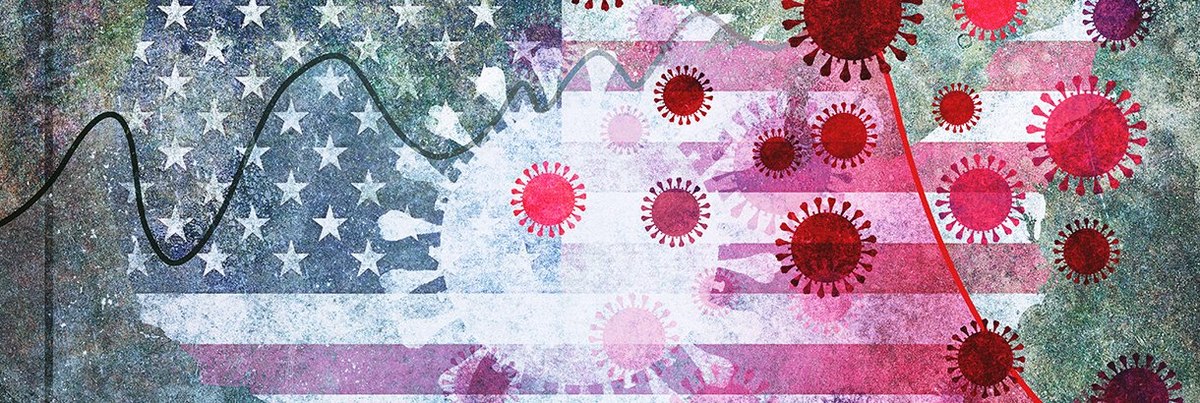Many attitudes about COVID-19 separate Republicans and Democrats.
More Democrats than Republicans have worried about personally contracting the coronavirus, ever since the first wave hit mostly urban Democratic areas. From late March to early May, as the virus spread, half of Republicans expressed concern about the virus, too, though always by a smaller percentage than Democrats. Concern among Republicans decreased in the summer and dropped to a low of 34% in October.
But in this week’s Economist/YouGov poll, as the virus spiked in most states and holiday travel exacerbated the outbreak, GOP concern increased. Just about as many Republicans now say they are worried about contracting the virus (49%) as say they are not (51%).
Democrats are still more concerned than Republicans about the virus, though. This week 80% say they are very or somewhat worried. In general, women (69%) are more likely than men (55%) to worry, and Black Americans (71%) and Hispanic Americans (75%) are more worried than white Americans (59%).
Democrats are also more willing to receive a COVID-19 vaccine. In this poll, 60% of Democrats (compared with 38% of Republicans) say they will be vaccinated. Black Americans continue to be resistant to accepting the vaccine: this week only 33% of Black Americans say they will get the vaccine, 36% will not, with many unsure. Hispanics are more positive: 44% will receive the vaccine, while 25% will not.
As for when those who want to be vaccinated will be injected, most know they will have to wait a while. Just over a third expect to be vaccinated in the spring. More, 43%, say it will happen later in the year. However, those 65 and older know they could head toward the front of the line for a vaccine. In fact, in Florida they are being vaccinated now. More than half of seniors nationally (53%) expect they will be vaccinated by spring.
There has always been concern about the fast-track vaccine approval process. But there is also another concern. Will there be enough vaccines for those who want it? About two in five (38%) believe there will be, one-third (33%) say there will not be, with the rest of the public not sure. Those who say they will be vaccinated are more positive: by 51% to 25% they say there will be enough doses for those who want them. But a quarter aren’t sure one way or the other.
Related: Most voters say the events at the US Capitol are a threat to democracy
See the toplines and crosstabs from this week’s Economist/YouGov Poll
Methodology: The Economist survey was conducted by YouGov using a nationally representative sample of 1,500 US Adult Citizens interviewed online between January 3 - 5, 2021. This sample was weighted according to gender, age, race, and education based on the American Community Survey, conducted by the US Bureau of the Census, as well as 2016 Presidential vote, registration status, geographic region, and news interest. Respondents were selected from YouGov’s opt-in panel to be representative of all US citizens. The margin of error is approximately 3.3% for the overall sample.
Image: Getty









